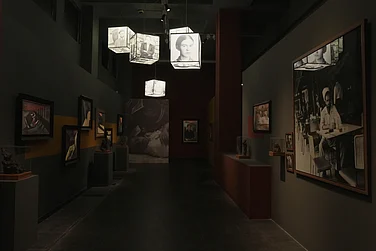Museums, places that contain histories of eras, have become more critical in our times where truth itself is a notion. Museums, ever since they came into being, have been facing criticism about being too heavy with history and also, for removing the historical life that birthed such artworks. They house within them contradictions that are subjective and yet they have become repositories of historical consciousness and identities by opening themselves to interpretations. The Bihar Museum is a museum of identities and reconstruction of histories and stories and within its walls, eras have been compressed and bridges can be formed. In a unique collaboration with Outlook Magazine, the Bihar Museum seeks to hold conversations on memory and history and for the second edition of the Museum Biennale in August this year, the first of such discussions will be happening at the NGMA in Mumbai where stakeholders will present their views on the biennale format in art and museum contexts.
Museums are places of ideas. Ideas that shape our future and our present. Museums are places of conversation with history and contemporary identities and they are entities that have evolved over time. We explore the potential of memory and museums as sites of memories.
This twofold process explains the paradoxical character of museums. They have been accused of being both too heavy with historical dust and too historically spotless, excessively historicizing artworks while cutting them off from the historical life in which artworks are born. Thus the museum seems contradictory because it lectures about the historical nature of its objects while denying the same objects the living historical connection about which it purports to educate.
The contradictory character of museums leads the author to a philosophical reflection on history, one that reconsiders the concept of culture and the historical value of art in light of the philosophers, artists, and writers who are captivated by the museum. Together, their voices prompt a reevaluation of the concepts of historical consciousness, artistic identity, and the culture of objects in the modern period. The author shows how museum culture offers a unique vantage point on the nineteenth and twentieth centuries’ preoccupation with history and subjectivity, and he demonstrates how the constitution of the aesthetic provides insight into the realms of technology, industrial culture, architecture, and ethics.








.png?auto=format%2Ccompress&fit=max&format=webp&w=768&dpr=1.0)

















